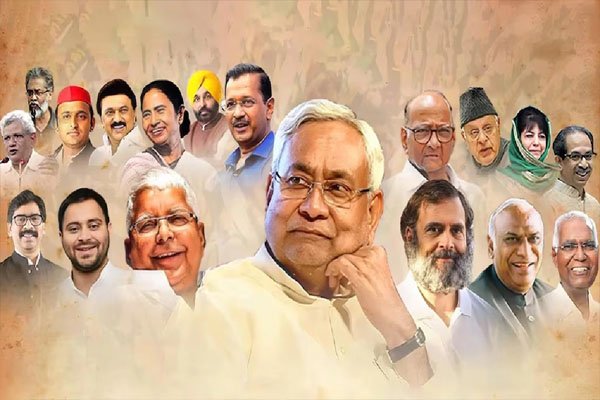The political landscape of Jammu and Kashmir has witnessed intriguing developments as the National Conference (NC) navigates its electoral strategy for the forthcoming Lok Sabha elections. Amidst speculation and varying narratives, the party’s stance on INDIA alliance and solo contesting has sparked significant interest and debate.
National Conference leader and former Chief Minister Omar Abdullah’s recent remarks shed light on the party’s nuanced approach. He clarified that while the NC remains a member of the INDIA alliance, the statements made by party president Farooq Abdullah regarding solo contesting in the Lok Sabha elections reflect the sentiments of the party cadre. This delineation underscores the NC’s pragmatic approach, wherein strategic decisions are made to align with broader objectives, even if they entail short-term sacrifices.
Omar Abdullah emphasized the NC’s willingness to contest elections on all seats, highlighting the party’s commitment to grassroots engagement and representation. However, he acknowledged the imperative of prioritizing larger objectives, suggesting that occasional compromises might be necessary. This assertion underscores the NC’s strategic flexibility, allowing it to adapt its electoral strategy to evolving circumstances and priorities.
Farooq Abdullah’s statement regarding the NC’s solo contesting in Jammu and Kashmir’s Lok Sabha elections adds another layer of complexity to the political landscape. Rejecting media reports of a potential alliance with the National Democratic Alliance (NDA), Farooq Abdullah affirmed the NC’s independence from the saffron bloc. He categorically stated that the NC has no intention of engaging with the NDA, neither in the present nor in the future. This unequivocal stance reaffirms the NC’s commitment to its ideological principles and political independence.
Instead, Farooq Abdullah hinted at informal discussions with the Congress regarding seat-sharing arrangements. This strategic maneuver reflects the NC’s pragmatic approach to coalition politics, wherein alliances are forged based on shared objectives and mutual interests. By exploring potential collaborations with like-minded parties such as the Congress, the NC aims to consolidate opposition forces and challenge the dominance of the Bharatiya Janata Party (BJP) in Jammu and Kashmir.
The impending visit of Prime Minister Narendra Modi to Jammu and Kashmir adds another dimension to the political discourse in the region. Omar Abdullah emphasized the need for tangible development initiatives in Jammu and Kashmir, urging the Prime Minister to prioritize the region’s welfare. In particular, he called for the implementation of the ‘one nation, one election’ doctrine in Jammu and Kashmir, advocating for synchronized assembly and parliamentary elections. This proposal reflects the NC’s emphasis on electoral reform and governance restructuring to enhance democratic processes in the region.
Farooq Abdullah’s assertion regarding the simultaneous conduct of assembly and parliamentary elections resonates with the NC’s long-standing advocacy for electoral consolidation and administrative efficiency. By advocating for synchronized elections, the NC aims to streamline the electoral process, minimize administrative burden, and optimize resource allocation. This pragmatic approach aligns with the NC’s broader agenda of promoting democratic governance and institutional reforms in Jammu and Kashmir.
Meanwhile, Congress MP Jairam Ramesh provided insights into the ongoing discussions regarding seat-sharing arrangements in Jammu and Kashmir. While acknowledging the diverse perspectives and constraints of different political parties, Ramesh underscored the enduring partnership between the NC and the Peoples Democratic Party (PDP) within the INDIA alliance. He reiterated the significance of collaborative efforts in confronting common challenges and advancing shared objectives.
Overall, the NC’s strategic maneuvering in Jammu and Kashmir reflects its commitment to navigating complex political dynamics while advancing its core agenda of regional autonomy and democratic governance. As the party navigates the intricacies of coalition politics and electoral strategy, its pragmatic approach underscores the importance of flexibility, pragmatism, and strategic alignment in achieving its overarching objectives.
